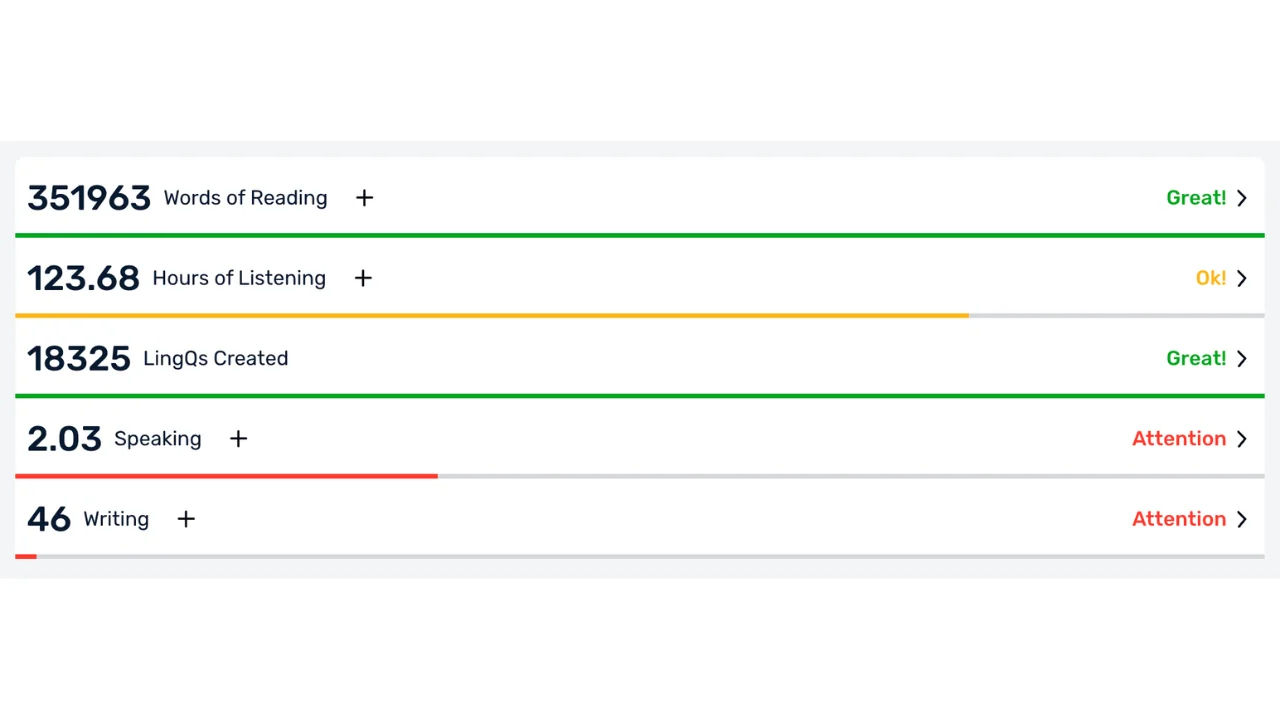Learning a language independently requires taking control of your own learning journey. Whether you’re studying in a classroom or on your own, success in language learning starts with embracing an independent mindset. Here, we’ll explore steps and strategies to help you develop autonomy as a language learner and achieve your goals.
1. Embrace the methods and routines that work best for you
To effectively learn a language independently, it’s essential to understand yourself as a learner. The path to fluency is in your hands. You should tailor the length of your study sessions, the materials you use, and the grammatical explanations to suit your needs. While guidance from a teacher is valuable, ultimately, you need to determine what setup and engagement with the target language work best for you.
Successful, independent language learners possess three elements:
- A positive, patient attitude
- Consistent and sufficient exposure to the language
- The ability to notice patterns and nuances in the language
Ensure that your language-learning method incorporates these three elements and take the initiative to align your routines and materials with your preferences.
2. Invest time in finding quality language content for independent learners
One key advantage of learning a language independently is the ability to choose your tools and resources. Invest time in discovering materials that support your goals. Find materials that suit your learning style as an independent learner. For example, you may prefer a concise grammar guide for quick explanations of the language’s structure. Personally, I recommend Dover’s Essential Grammar series for its easy reference and simplicity.
To learn a language on your own, you need a variety of engaging, level-appropriate content. Engaging content keeps learning interesting. For example, if you’re learning Chinese, look for Chinese readers with glossaries. If you’re studying Polish, consider using materials from RealPolish.pl. Personally, I find LingQ’s mini-stories effective for offering repetitive vocabulary and helping me notice language patterns.

3. Establish Ways to Track Your Progress
Language learning, especially on your own, can sometimes feel like a daunting journey. Stay motivated by setting specific short-term goals to measure your progress. Platforms like LingQ allow you to track goals such as the number of words saved, read, or learned. These small achievements can keep you motivated and show the benefits of consistent effort and exposure.

During challenging times, these milestones can reassure you that you’re moving forward. Remember, as long as you continue to invest time and engage with the language, you’re making progress.
While self-guided learning is effective, it doesn’t have to be a solitary process. Track your progress by interacting with native speakers on platforms like italki or finding a language partner on LingQ. This interaction can boost your confidence and provide insight into your speaking skills. Use feedback from tutors or common errors in your writing to continue learning independently.

For more information on useful vocabulary and metrics for tracking language learning progress, visit my post on proficiency levels and defining fluency.
4. Challenge Yourself to Engage with Authentic Material
As you become more proficient, transition from materials designed for language learners to authentic content that aligns with your interests. This shift signifies a new phase in your language learning journey. Explore topics that interest you, such as history, non-fiction, or podcasts, in your target language.
Authentic materials not only enhance fluency but also make independent language learning more enjoyable. When you’re engaged with the content, your focus shifts from simply learning the language to using it as a tool to understand subjects you’re passionate about.
Conclusion: Successfully learning a language on your own
In language learning, you have the power to design your own journey. By embracing an independent mindset, investing in valuable resources, exploring diverse content, and setting achievable goals, you can develop the skills and confidence to succeed on your terms. Remember, what you do outside the classroom is crucial to your learning progress. Approach your learning with curiosity, patience, and dedication, and don’t hesitate to seek support when needed.
If you found this post helpful, you can also watch my video on this topic on my YouTube channel. For more insights on effective language learning methods, check out my post on “The Most Effective Language Learning Method.”






